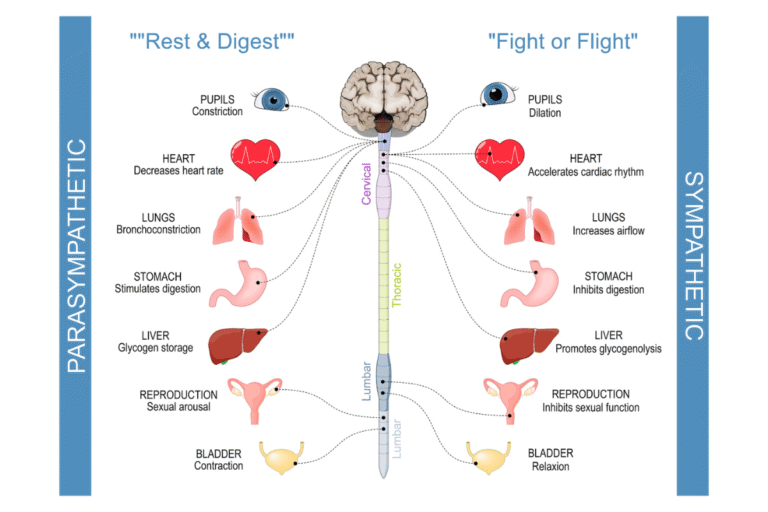
There’s a myth circulating in healthcare that testing for sex hormones during perimenopause is unnecessary—that we should simply treat based on symptoms. While this approach might sound straightforward, it often leads to mismanagement, missing critical underlying factors contributing to a woman’s symptoms.
At Antigravity Wellness, we believe in the power of testing. Understanding the root cause of symptoms through comprehensive hormonal and functional testing is essential to providing targeted, effective treatment. Let’s dive into why testing matters and how it can transform your health journey.
Why Symptoms Alone Aren’t Enough
Perimenopause symptoms like fatigue, brain fog, weight gain, hot flashes, and mood swings can stem from a variety of causes, including:
- Hormonal imbalances (estrogen, progesterone, testosterone).
- Thyroid dysfunction.
- Adrenal dysregulation.
- Nutritional deficiencies (e.g., iron, vitamin D, magnesium).
- Gut health issues (dysbiosis, leaky gut).
- Chronic inflammation or undiagnosed infections.
Relying solely on symptoms to guide treatment risks overlooking these critical contributors, leading to suboptimal results or worsening conditions.
The Challenges of Hormonal Testing in Perimenopause
It’s true that testing hormones during perimenopause can be more complex due to fluctuating levels, but complexity doesn’t mean impossibility.
Timing Matters
- Early Perimenopause:
- Testing around 7 days after ovulation provides the most accurate snapshot of peak hormone levels, particularly progesterone.
- Late Perimenopause:
- As cycles become irregular, pinpointing the best testing window can be challenging. In these cases, functional tests like the DUTCH Complete (which measures hormones over a full day) provide a clearer picture.
Beyond Hormones: The Bigger Picture
Perimenopause is not just about sex hormones. A woman’s symptoms often stem from multiple systems working together—or against her.
Key Areas to Evaluate
- Thyroid Health: Testing TSH, free T3, free T4, reverse T3, and thyroid antibodies ensures proper thyroid function.
- Adrenal Function: Measuring cortisol patterns helps identify adrenal fatigue or dysregulation.
- Gut Health: A comprehensive stool test (like the GI MAP) can uncover dysbiosis, inflammation, or nutrient malabsorption.
- Inflammation: Markers like CRP and ESR detect chronic inflammation affecting overall health.
- Anemia: Testing for iron, ferritin, and vitamin B12 ensures adequate oxygen transport and energy levels.
- Insulin Resistance: Evaluating fasting glucose, insulin, and HOMA-IR identifies early metabolic issues.
Benefits of Testing in Perimenopause
1. Precision Medicine
- Testing allows for customized treatment plans based on objective data rather than guesswork.
2. Early Detection
- Identifies issues like thyroid dysfunction, insulin resistance, or chronic inflammation before they worsen.
3. Targeted Treatment
- Ensures that therapies, such as hormone replacement, supplements, or lifestyle changes, are addressing the root cause.
4. Faster Results
- Avoids the trial-and-error approach, saving time and reducing frustration.
Case Study: Maria’s Journey
Maria, a 44-year-old mother of three, was exhausted, experiencing mood swings, and struggling with unexplained weight gain. Her doctor suggested her symptoms were “just perimenopause” and offered generic hormone therapy.
Frustrated by the lack of results, Maria sought help at Antigravity Wellness. Through comprehensive testing, we discovered:
- Low progesterone and high estrogen (estrogen dominance).
- Suboptimal thyroid function (low free T3).
- A vitamin D deficiency.
With this information, Maria began a targeted plan that included bioidentical hormone replacement therapy (BHRT), thyroid support, and dietary changes. Within months, her energy returned, her mood stabilized, and she started losing weight.
Dietary and Lifestyle Tips While Testing
While waiting for your results or starting a plan, consider these foundational strategies:
- Balanced Nutrition
- Prioritize whole, anti-inflammatory foods. Include healthy fats, lean proteins, and fiber-rich carbs.
- Manage Stress
- Chronic stress exacerbates hormone imbalances. Try meditation, journaling, or yoga.
- Support Sleep
- Aim for 7–9 hours of quality sleep. Reduce screen time before bed and create a calming nighttime routine.
- Stay Active
- Incorporate strength training and moderate-intensity cardio to support hormonal health.
When to Seek Professional Help
Warning Signs to Address Immediately
- Rapid weight changes.
- Persistent fatigue despite rest.
- Severe mood swings or depression.
- Sudden or heavy irregular bleeding.
- Difficulty concentrating (brain fog).
If you experience these symptoms, testing is essential to uncover the underlying issues and create a targeted plan.
Further Reading and Resources
- The Hormone Cure by Dr. Sara Gottfried
- What Your Doctor May Not Tell You About Premenopause by Dr. John Lee
- Research Articles:
How Antigravity Wellness Can Help
At Antigravity Wellness, we specialize in the comprehensive evaluation and care of perimenopausal and menopausal women. Our approach includes:
- Advanced functional testing to uncover hormonal and systemic imbalances.
- Personalized treatment plans based on your unique needs.
- Holistic support to help you feel your best during this transformative stage of life.
If you’re tired of guessing and want to take control of your health, schedule your brief initial consult today to get started on your path to clarity and vitality.




